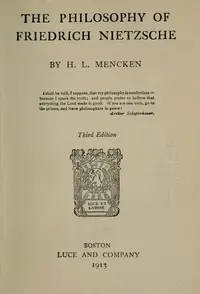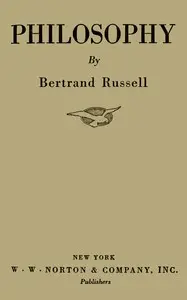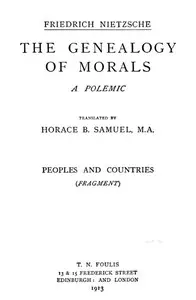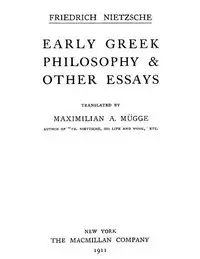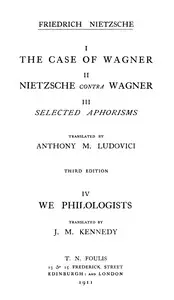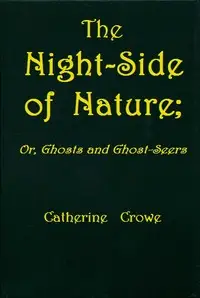"Beyond Good and Evil" by Friedrich Wilhelm Nietzsche is a bold takedown of old-fashioned ideas about right and wrong, diving headfirst into the tricky areas of truth, morals, and what makes us tick as humans. Nietzsche goes against the grain of past thinkers, questioning if what we think of as "good" and "evil" are too simple. He looks at the reasons behind why we do what we do and why we believe what we believe, poking holes in the idea that people always seek truth. Instead, he suggests that our so-called truths might just come from our hidden urges and wants. Giving a hard time to philosophers who stick to rules without questioning them, Nietzsche pushes for a more real-world understanding of morals, one that sees the messy mix of desires and power that drives us. Through his questioning and often challenging writing, Nietzsche forces us to rethink how we see goodness, knowledge, and what it means to be alive.

Beyond Good and Evil
By Friedrich Wilhelm Nietzsche
Dare to question everything you think you know about right and wrong as a philosopher challenges the very foundation of morality and truth.
Summary
About the AuthorFriedrich Wilhelm Nietzsche was a German classical scholar, philosopher, and critic of culture, who became one of the most influential of all modern thinkers. He began his career as a classical philologist before turning to philosophy. He became the youngest person to hold the Chair of Classical Philology at the University of Basel in Switzerland in 1869, at the age of 24, but resigned in 1879 due to health problems that plagued him most of his life; he completed much of his core writing in the following decade. In 1889, at age 44, he suffered a collapse and afterward a complete loss of his mental faculties, with paralysis and probably vascular dementia. He lived his remaining years in the care of his mother until her death in 1897, and then with his sister Elisabeth Förster-Nietzsche. Nietzsche died in 1900, after experiencing pneumonia and multiple strokes.
Friedrich Wilhelm Nietzsche was a German classical scholar, philosopher, and critic of culture, who became one of the most influential of all modern thinkers. He began his career as a classical philologist before turning to philosophy. He became the youngest person to hold the Chair of Classical Philology at the University of Basel in Switzerland in 1869, at the age of 24, but resigned in 1879 due to health problems that plagued him most of his life; he completed much of his core writing in the following decade. In 1889, at age 44, he suffered a collapse and afterward a complete loss of his mental faculties, with paralysis and probably vascular dementia. He lived his remaining years in the care of his mother until her death in 1897, and then with his sister Elisabeth Förster-Nietzsche. Nietzsche died in 1900, after experiencing pneumonia and multiple strokes.


